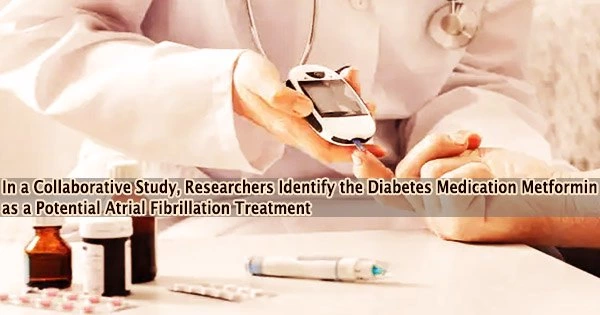Diabetes is a chronic medical condition that affects how your body processes glucose (sugar), a crucial source of energy. There are several types of diabetes, but the two most common ones are: Type 1 Diabetes & Type 2 Diabetes. There are also other rarer forms of diabetes, including gestational diabetes (which occurs during pregnancy) and monogenic diabetes (caused by specific genetic mutations).
Cleveland Clinic researchers have identified a common diabetes medication, metformin, as a possible treatment for atrial fibrillation. The treatment of atrial fibrillation (AFib) actually depends on various factors, including the patient’s overall health, the severity of their symptoms, and the underlying cause of the AFib.
The study, published in Cell Reports Medicine, built on ongoing collaborative Cleveland Clinic research to support further investigation into metformin as a drug repurposing candidate. It was discovered by researchers using cutting-edge computation and genetic sequencing that the targets of metformin considerably overlap with the genes dysregulated in atrial fibrillation.
“Finding drugs or procedures to treat atrial fibrillation is difficult because of potential serious side effects,” said Mina Chung, M.D., senior author of the study who is in Cleveland Clinic’s Department of Cardiovascular Medicine in the Heart, Vascular and Thoracic Institute. “There is a significant need for new treatments for atrial fibrillation as there have been no new drugs approved in more than a decade.”
“It’s not that we’ve found a new drug target where it takes 20 years to test this in individuals,” said Jessica Castrillon Lal, the study’s first author and a fifth-year graduate student in the Cleveland Clinic Molecular Medicine program.
“We can cut off 10+ years in the drug development pipeline. We already have the information there. We just have to test it in a very computationally efficient way, such as artificial intelligence technology,” said Feixiong Cheng, Ph.D., co-senior author of the study who is Associate Staff at the Genomic Medicine Institute in Cleveland Clinic’s Lerner Research Institute.
Finding drugs or procedures to treat atrial fibrillation is difficult because of potential serious side effects. There is a significant need for new treatments for atrial fibrillation as there have been no new drugs approved in more than a decade.
Mina Chung
According to the analysis, metformin directly affected the expression of eight genes out of the 30 that were linked to atrial fibrillation. The analysis revealed eight more prospective medications, but after testing each one and examining the results in enormous databases of patient information, researchers were able to pinpoint metformin as the most promising choice.
Castrillon Lal conducts research in Dr. Cheng’s lab, which uses network medicine approaches to find candidate drugs for repurposing, creating vast networks of molecular interactions. A network of genes linked to atrial fibrillation, a map of protein interactions known as an “interactome,” and the molecular or genetic targets of each drug were used to narrow down a list of 2,800 FDA-approved medicines for this study.
Atrial fibrillation is the most common type of heart arrhythmia in the world and can lead to complications, including stroke and heart failure. It is a complex condition, and management may require ongoing adjustments and monitoring to ensure the best outcomes and quality of life.
The main focus of treatments has been to try to prevent the arrhythmia with medications that target the electrical system, such as ion channels in the heart, or by employing catheter ablation to isolate the pulmonary veins that are responsible for the atrial fibrillation’s initial beats.
However, side effects, limited success and potential complications can limit these approaches.
The research was conducted in collaboration with labs led by Dr. Chung, Dr. Cheng, David Van Wagoner, Ph.D.; Jonathan Smith, Ph.D., Department of Cardiovascular and Metabolic Sciences; and John Barnard, Ph.D., Department of Quantitative Health Sciences in the Lerner Research Institute.
Prior work from Drs. Chung, Smith, Van Wagoner, and Barnard had also identified the enzyme AMPK as a potential key regulator for metabolic stress. Metabolic stress has been associated with atrial fibrillation.
















